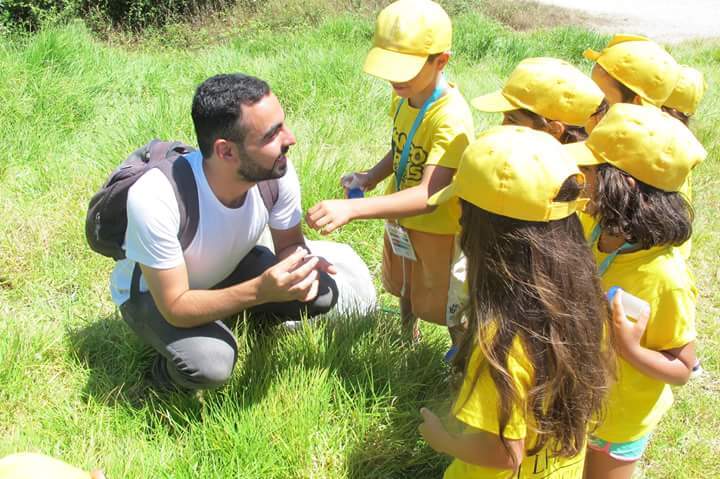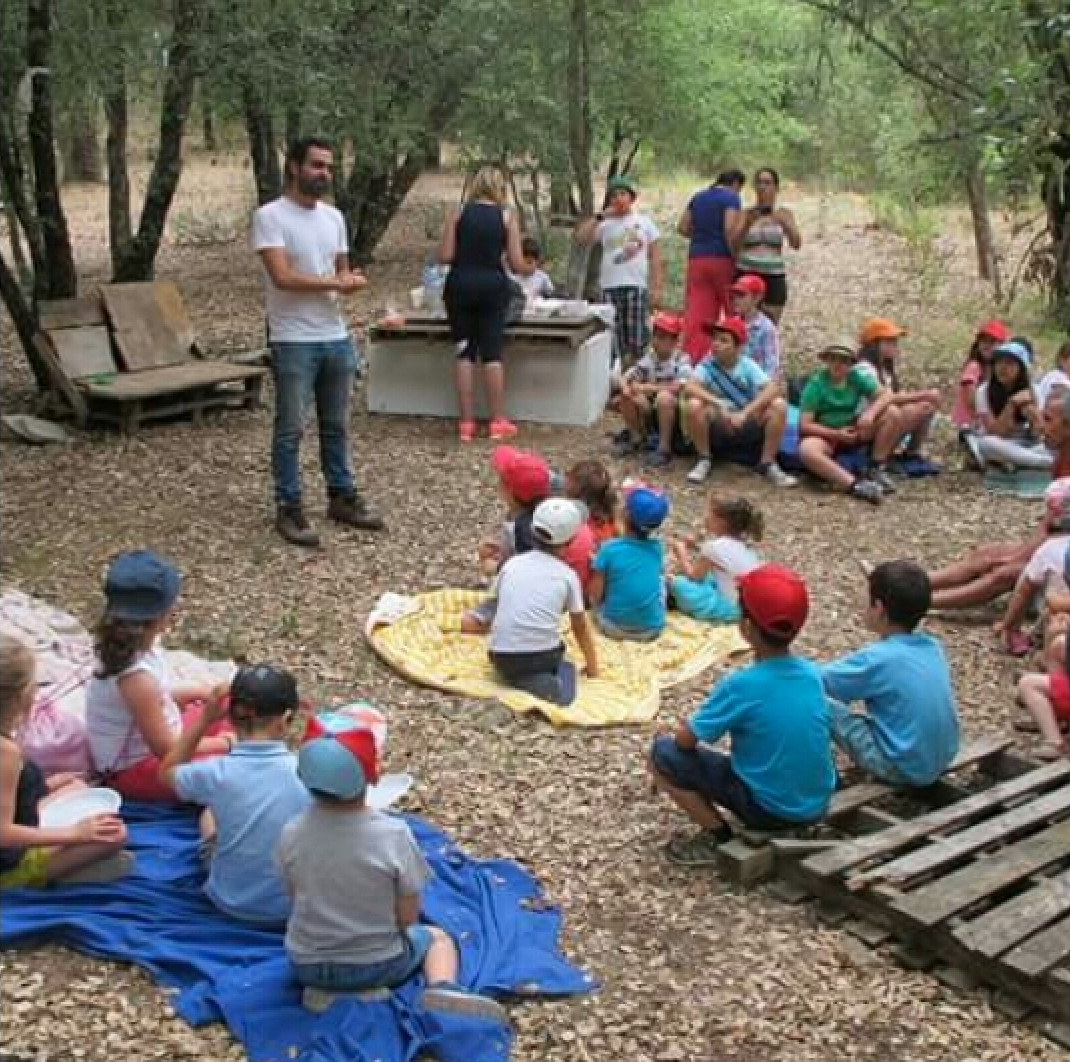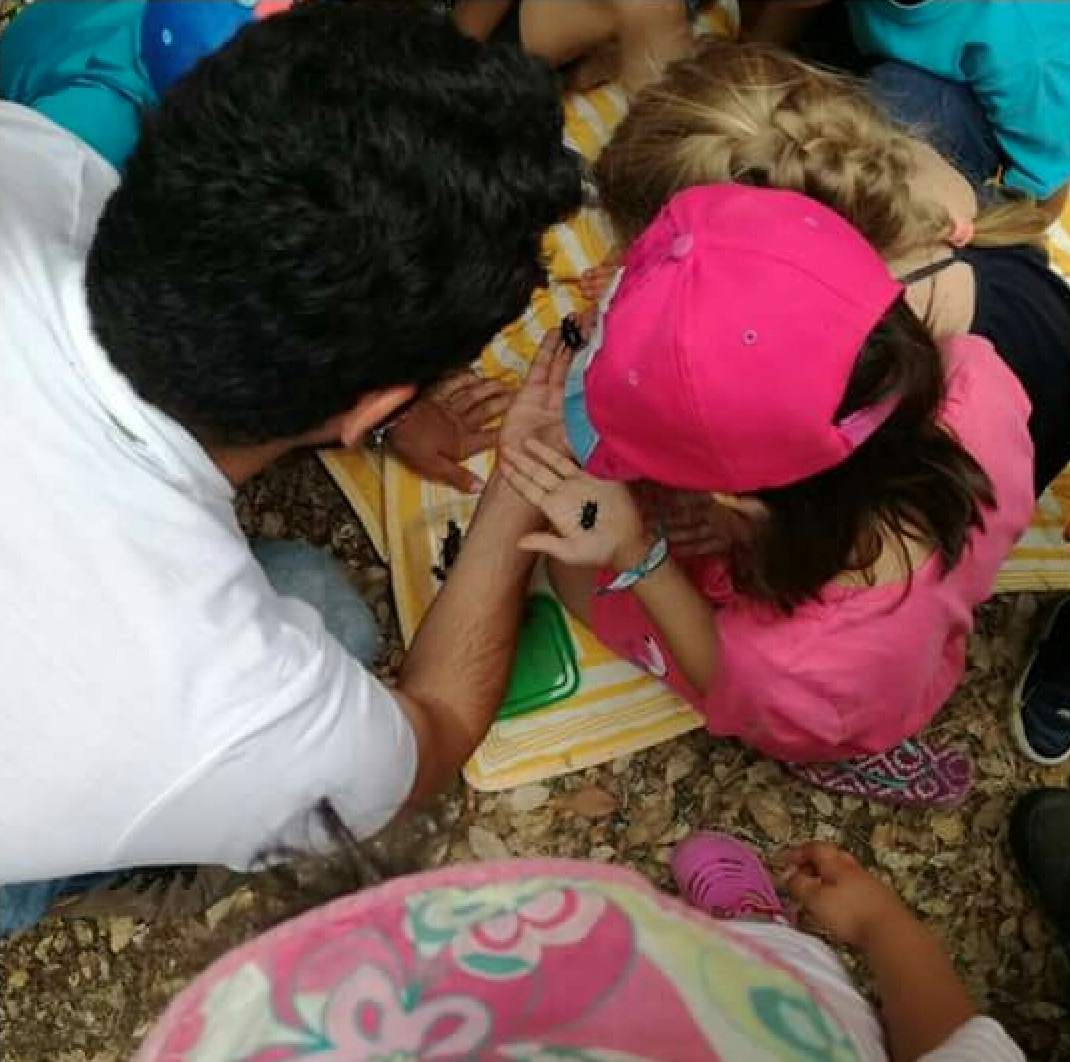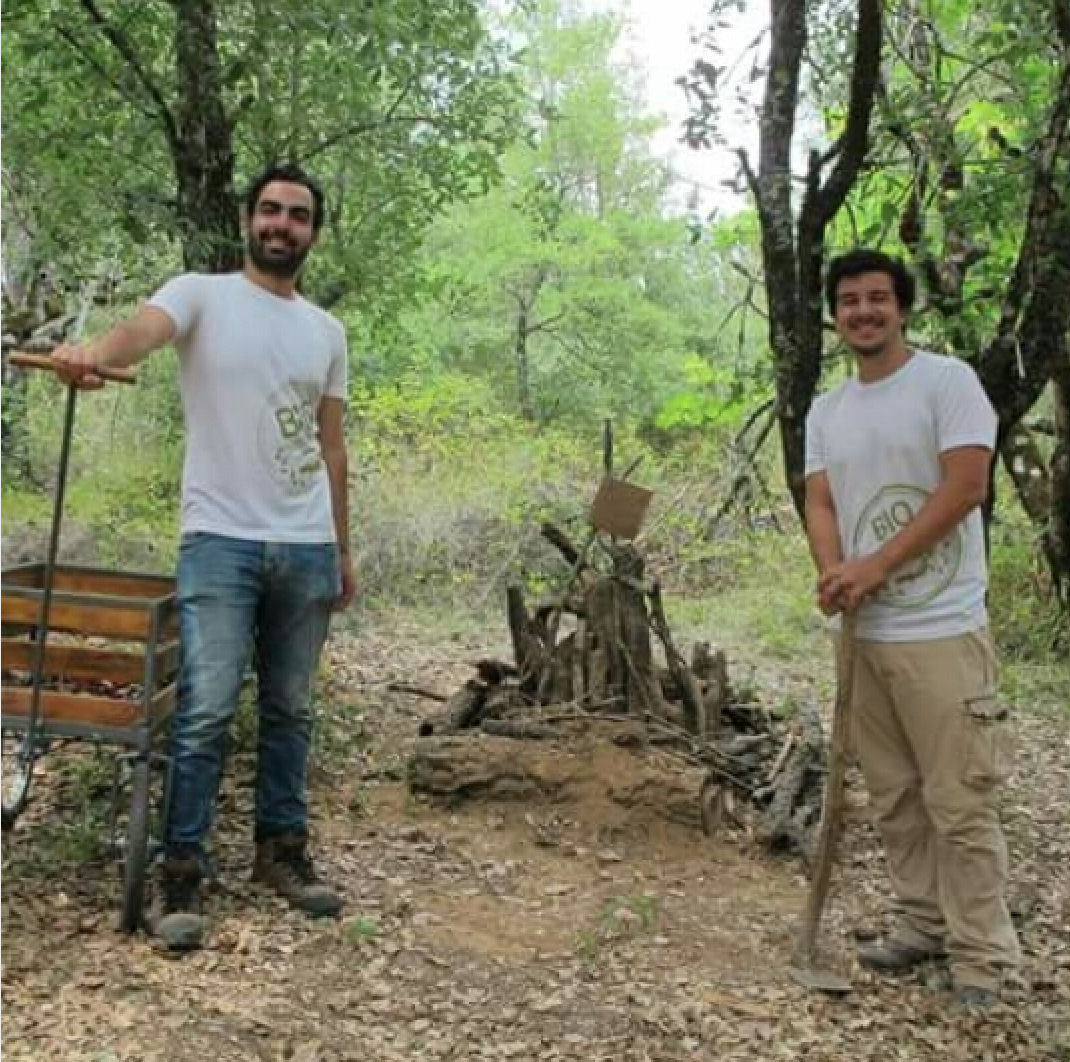How I teach Environment outside of the classroom
Gonçalo Abreu, Biologist
Madeira, Portugal
Nature is part of the human species. Throughout history we always have been learning and growing trough mother nature. So why does the learning process of children not usually include outside classes?
In Portugal, environmental education is pretty conventional: classroom, textbook, school students, teacher. But I have been trying to use informal education as a tool of learning and growth of our children. Outside classroom kids can learn from experts of different areasand moreover see the environment itself. Biology, Botany, Ecosystems, Foresty, Agriculture and many other subjects are not actully subject, it is the life around us.

As a Portuguese biologist who teaches children the importance of environment preservation and Climate Change, teaching outside of the classroom it makes a lot more sense. Going into a meadow or a forest to show the biodiversity of the natural world around the home and schools of the students lets them experience their hometown in a different perspective. Also, it allows children to have direct contact to nature that helps boost their immune system and have better mental health.
So, what kind of activist do I do?
How about an activity that teaches the importance of insects in the ecosystem and alleviates a little of the fear of this animal in many students? Or a little bit of woodwork and build some homes for bats and birds? Or simply an introduction to the many different animals that live around and how to spot them?
There is a lot of types of activities that a biologist can do outside of the classroom, but one thing that all of them have in common is that they increase the time that children can spend time in nature and teach them the importance and role it has in their life. Learning how to preserve it and not fear it!
So, an opportunity to take students to a different country where they can be in contact with different ecosystems and species, is an opportunity to enrich their curriculum and education. Simply by doing a trail in a different country is a world changing experience!

Lesson: Night Creatures
The initiative challenges participants of all ages to mask themselves, grab a flashlight and set off on the adventure of discovering the animals that inhabit the night, in the company of those who study them.
Students will follow a pre-programmed path in the forest where they will stop at different points, at each they will have an introduction of a group of nocturnal animals (Bats, insects, spiders, owls, toads and frogs) and a small challenge in the form of a riddle. Each post takes about 10 min.
After the adventure, students will have the opportunity to enjoy a Halloween snack at the end of the trail. The activity lasts 2 hours with transport to the site.
This can also be adapted if the weather conditions are not suitable, in other words, instead of a route through the forest, it is done inside a building where the points are adapted by the different divisions.
To participate, interested parties must assemble a team of up to five elements, at most, and register through an online link provided by the entity.
Note: This activity can be done on foot or bike.
Lesson: Woodworks - Bats and Birds
 This activity challenges students to join their work wood knowledge and bats and birds' biology knowledge.
This activity challenges students to join their work wood knowledge and bats and birds' biology knowledge.
There is two parts to this activity:
First a quick and simple lecture of the ecology and biology of flight creatures in the Portuguese ecosystems the students will build function nest and shelters for these two groups of animals.
And second, the installation of these new homes in the local park or forest.
The activity takes 1h30 and all of the materials are provided by the association.
Lesson: Fauna Identification workshops
 Who doesn't love going on a nature walk and be able to identify the species around them. Knowledge is power and knowing also what's beautiful but dangerous is very important specially for children.
Who doesn't love going on a nature walk and be able to identify the species around them. Knowledge is power and knowing also what's beautiful but dangerous is very important specially for children.
So multiple workshop’s where we teach everyone how to identify all kinds of life forms (frogs, snakes, bugs plants and fungi) is a good skill set to have.
So, a simple activity where we do a theoretical identification workshop fallowed by a walk-in nature with the objective to see said animals, is a great opportunity to develop these skills.
